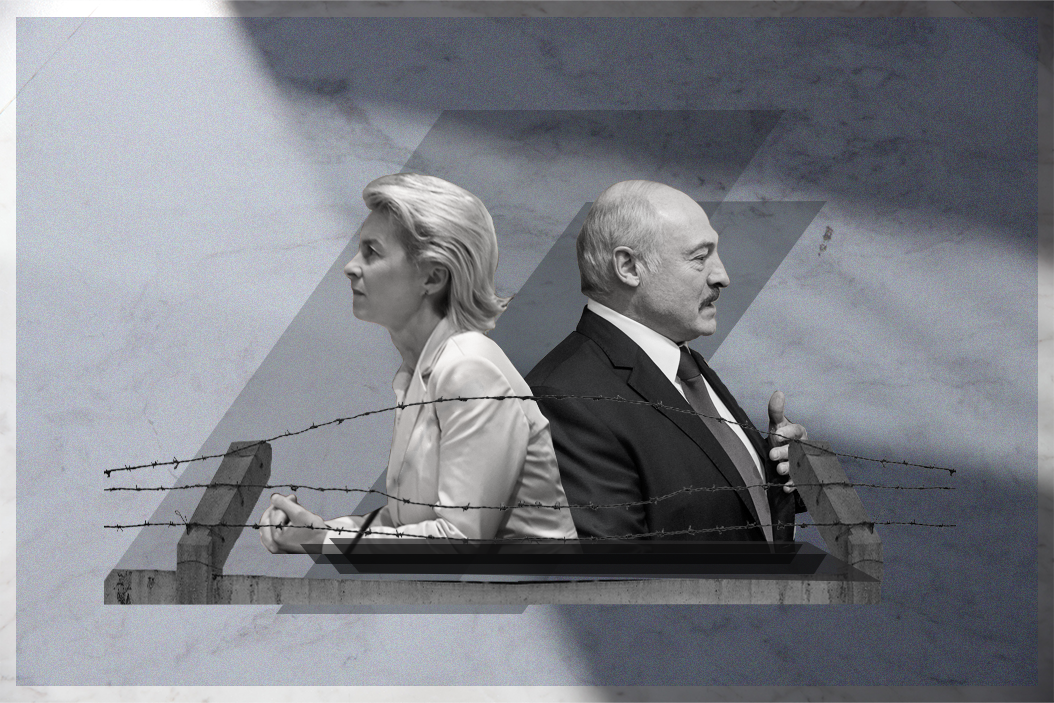The crisis at the Belarusian-Polish border appears to have eased, but is far from over. Thousands of people desperate to enter the European Union remain stuck in the border zone, waiting for Poland to at least consider their asylum applications.
Where do things currently stand and what are some of the key players hoping to achieve?
Belarus' Lukashenko: Accept me as I am
President Alexander Lukashenko – affectionately known as "Europe's last dictator" – created the current crisis by facilitating dozens of flights to Minsk from refugee hotspots in Iraq, Syria and Turkey. Through an organized campaign that began in June, his government has lured thousands of migrants to Belarus with promises of eventual resettlement in the EU.
Why? By unleashing a migrant crisis, Lukashenko wanted to put pressure on Brussels to recognize his presidency, which the EU has refused to do since the strongman rigged presidential elections last year, unleashed a brutal crackdown on peaceful protesters, and hijacked an EU flight.
So far, Lukashenko's gambit hasn't worked. German Chancellor Angela Merkel has made a point of referring to him as "Mr Lukashenko" rather than "President" in recent calls, which made him feel very unseen. Meanwhile, Washington and Brussels have in fact hit Minsk with more sanctions in recent weeks, though some apply to travel agencies, transportation companies and airlines that have shuttled migrants from the Middle East to Eastern Europe in recent months, rather than targeting Lukashenko and his cronies directly.
European Union: Faux outrage
Things have since settled down somewhat, with Minsk having caved to pressure to clear certain processing centers at the Polish border, as well as hit the brakes on incoming flights.
But these developments do not address the problem of what to do with the migrants who remain at the border. While some have already been sent back to Iraq, thousands remain stranded in swampy forestland, as Polish and Belarusian forces continue playing tug of war. The death toll at the border is now 10 – and climbing.
The basic problem is that six years on from the 2015 refugee crisis, the EU still does not have a coherent or effective policy on how to deal with migrants, leaving things largely, in practice, up to individual member states.
The European Commission had previously proposed a far-reaching immigration plan based on "a compulsory solidarity mechanism," which would compel each member state to host asylum seekers, as well as to share the burden of funding medical supplies and equipment at arrival zones.
But that proposal still needs to be approved unanimously in the European Council after consultation with Parliament (a very convoluted process). Stalemate persists because some state governments have opposed measures that would require countries to take in refugees and the EU remains powerless to force them.
But it's not just so-called "illiberals" in Poland and Hungary who feel this way. Data show that EU residents across the board see immigration from outside the bloc as presenting more of a "problem" (38 percent) than an "opportunity" (20 percent).
Meanwhile, migrants at the border remain in limbo. Warsaw – with support from the Polish constituency – continues to double-down on its hardline position. Human rights groups say that Poland's actions violate the Universal Declaration of Human Rights, which states that everyone has a right to seek asylum from persecution. But even if EU Commission President Ursula von der Leyen would like Poland to deescalate, allowing at least some migrants to be processed in the EU, she continues to strongly back Warsaw in its ongoing row with Minsk.
What now? Lukashenko claims that he does not seek further confrontation with the EU, which he said would make "war unavoidable." So far, the EU is not backing down, saying the onus is on Minsk to end the current crisis.
It's increasingly clear that the EU, for its part, has no mechanism to force member states to take in migrants even as migration remains a critical issue bloc-wide, not least as a big refugee crisis is already brewing in Afghanistan.
